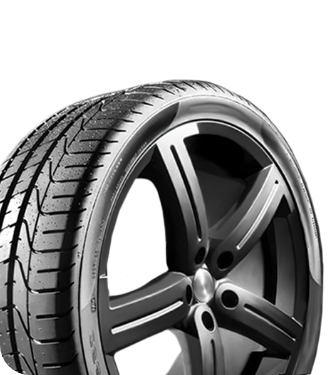

10 Ways Elevation Impacts Car Performance on Road Trips
Safety Tips |Planning a road trip? You’re probably thinking about packing essentials, planning routes, and mapping out pitstops. But have you considered how changes in elevation might impact your car’s performance?
Understanding the ways elevation impacts car performance on road trips can help you prepare for unexpected changes and ensure a smooth ride. Let’s break down the factors you should be aware of before hitting the open road.
1. Reduced Engine Power at Higher Elevations
If your road trip takes you to mountainous regions, your car’s engine power could drop significantly. Why? At higher altitudes, the air becomes less dense, resulting in reduced oxygen levels.
Since your engine mixes oxygen with fuel for combustion, less oxygen means a weaker explosion, leading to lower power output. It’s particularly noticeable in vehicles without turbochargers or superchargers, as these devices compensate for thinner air by forcing more oxygen into the engine.
To combat this, plan your high-elevation travel during cooler parts of the day when air density is slightly higher. If your car struggles regularly at altitude, consider upgrading to a turbocharged vehicle.
2. Increased Fuel Consumption at High Altitudes
Your car’s fuel efficiency can suffer in high-elevation areas due to changes in air density. At elevated altitudes, the reduced air density contains less oxygen, which makes the engine work overtime, burning more fuel than usual.
While it helps the engine run smoothly despite the lack of oxygen, it can lead to increased fuel consumption and more frequent trips to the gas station. Be aware of this when driving in mountainous or high-altitude regions to plan your refueling stops accordingly.
3. Tire Pressure Fluctuations
Elevation changes impact more than just your engine. Your tires are particularly vulnerable to these shifts because air pressure outside your car decreases at higher altitudes. Without regular monitoring, tires may become overinflated or underinflated, depending on the ascent or descent. Incorrect tire pressure compromises fuel efficiency and affects traction and handling, both critical for road safety.
Use a portable tire pressure gauge to check inflation levels at different points in your trip. Keep in mind that the recommended pressure can vary depending on your vehicle’s make and model, so consult your owner’s manual for guideposts.

4. Cooling Systems Work Overtime
Your engine’s cooling system will also face unique challenges. Climbing steep grades or spending extended periods at high elevations forces your engine to work harder under lower air density conditions, increasing heat buildup. Additionally, thinner air reduces the effectiveness of radiators because they rely on airflow to dissipate heat.
Before your trip, check your coolant levels and consider flushing your cooling system if you haven’t gotten it serviced in a while. This can prevent overheating and costly breakdowns during your drive.
5. Lower Brake Efficiency on Downhill Travel
Descending steep grades can cause brakes to overheat, particularly if you rely on them for long periods of time. When brakes overheat, they lose their ability to provide sufficient stopping power, a dangerous situation known as brake fade.
We recommend using engine braking by shifting to a lower gear when going downhill. This technique decreases reliance on your brakes, allowing them to cool and function more effectively in emergencies.
6. Changes in Air Conditioning Performance
Elevation reduces the efficiency of car air conditioning systems, much like it affects engines. A/C units rely on air intake to function effectively, but at higher altitudes, the air is thinner, providing less oxygen for the cooling process. As a result, the system has to work harder to cool the cabin, which can lead to increased fuel consumption and a noticeable drop in cabin comfort.

7. Suspension and Handling Variability
The suspension system in your car plays a significant role in providing a smooth ride. At higher elevations with winding or gravel roads, your suspension system faces increased strain from frequent changes in road grade. Poorly maintained or older shock absorbers can make these terrain changes feel even harsher.
Inspect your suspension system before tackling high-elevation drives, especially if your trip involves rugged routes. This will improve comfort and safety.
8. Decreased Battery Performance in Cold Elevations
If your road trip includes stops at cooler high-altitude destinations, keep in mind that colder temperatures can impact your vehicle’s battery performance. Low temperatures reduce a battery’s ability to hold a charge. With a reduced battery, it may become difficult to start your car, especially if your battery is older or already weak.
This can potentially leave you stranded in an inconvenient situation, so it’s a good idea to check your battery’s health before setting off on your journey to avoid unexpected issues.
9. Impact on Vehicle Aerodynamics
At high altitudes, the thinner air reduces aerodynamic drag on your vehicle, which might initially seem like a positive effect. However, this same reduction in air density also compromises the downforce that keeps your car stable, particularly at higher speeds.
As a result, your car’s steering may feel lighter or less responsive, making it more difficult to maintain control, especially in windy conditions or during sharp turns. This can pose a challenge for drivers not accustomed to such changes in handling.
To stay safe on high-altitude highways, keep your speeds moderate, maintain a firm grip on the steering wheel, and remain alert to any sudden changes in stability or wind conditions.
10. Tire Wear and Heat Buildup
Driving uphill generates friction, which causes your tires to heat up much faster compared to driving on flat terrain. This effect is further amplified by the thinner air at higher altitudes, which provides less natural cooling for your tires.
The increased heat and reduced cooling can accelerate tire wear significantly over time. If your tires are already nearing the end of their lifespan or show signs of wear, the added strain from uphill driving could increase the risk of a blowout, potentially leading to dangerous situations on the road.
Getting Your Car Road Trip-Ready
Understanding the ways elevation impacts car performance on road trips can save you from unexpected surprises during your travels. From fluctuating tire pressure to reduced engine power, each impact underscores the importance of proper preparation.
Whether you need new tires, tire pressure checks, or are worried about brake performance, RNR Tire Express has your back. We recommend visiting our tire shop in McAllen, TX, to get your vehicle checked out and ready for your next adventure. Safety starts with preparation!





